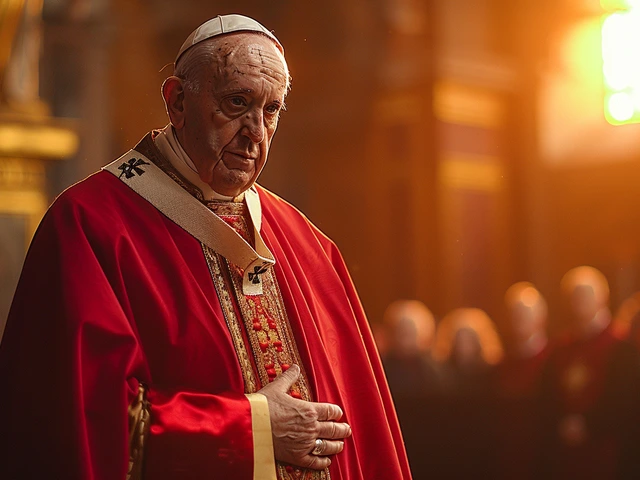Introduction
The Eastern Cape Transport and Community Safety MEC, Xolile Nqatha, has issued a stern caution against the circulation of social media posts and videos that incite violence. This admonition arrives at a critical juncture as Mthatha faces tumultuous protests that have nearly paralyzed the city. The upheaval has been largely driven by taxi drivers who are reacting to a recent crackdown by authorities, which saw the confiscation of numerous weapons including 38 pistols and five rifles.
Backdrop of the Protests
The unrest in Mthatha reached a fever pitch following the authorities' intervention against a taxi group that had converged at a local hospital. The situation escalated dramatically after the deaths of three taxi operators in a shootout last week. Distressed and agitated, the taxi drivers resorted to extreme measures by blocking major roads, including the N2 and R61. The blockade brought traffic to a grinding halt and effectively turned Mthatha into a battleground.
Tensions have simmered for a while, but the recent confiscation of their weapons pushed the taxi operators to take a brazen stand. Their goal was ostensibly to demonstrate their discontent and to pressure the authorities into returning the seized armaments. Alarmingly, the protests took a turn for the worse with reports of truck hijackings and other acts of lawlessness.
Response from the Authorities
Nqatha has described the calls for a citywide shutdown as selfish, immature, and irresponsible. His condemnation highlights the broader repercussions of the crisis, which has already disrupted daily life in significant ways. Schools have been closed, airports are experiencing delays, and the palpable sense of unease has spread throughout the community. Nqatha emphasized that such actions only serve to deepen divisions and escalate violence within the province.

Efforts to Restore Order
Nqatha assured the public that his department is collaborating closely with the police to quell the unrest and restore normalcy. In an urgent measure, law enforcement agencies have sought the assistance of the South African National Defence Force (SANDF). The hope is that the presence of the SANDF will serve as a deterrent against further violence and help reinstate order in Mthatha. However, the deployment of military forces in civilian matters underscores the severity of the situation.
The Role of Social Media
This incident also underscores the potent role that social media plays in inflaming public sentiment and inciting acts of violence. Nqatha’s warning is a poignant reminder of the responsibility that comes with digital communication. Sharing violent videos or incendiary posts can rapidly escalate tensions, spreading fear and misinformation. In times of crisis, responsible use of social media becomes paramount to ensuring public safety and maintaining communal harmony.
It's worth noting that misinformation and sensationalism can have far-reaching consequences. Videos that showcase violent acts or incendiary rhetoric can create a domino effect, leading others to follow suit. This effect further complicates the task for law enforcement agencies already grappling with multiple fronts.
A Call for Restraint
With the upcoming elections adding another layer of complexity, the call for restraint and responsible behavior on social media becomes ever more critical. Nqatha's plea to the public is not just about navigating current challenges but also about setting a precedent for future conduct. The manner in which communities respond to crises can either fortify societal bonds or deepen existing fractures.
The unfolding situation in Mthatha is a poignant example of how localized events can rapidly escalate into significant crises, especially when compounded by the misuse of social media. It serves as a sobering reminder of our collective responsibility to act judiciously, both online and offline.

Broader Implications
The ramifications of the Mthatha protests extend beyond immediate disruptions. They highlight systemic issues within the taxi industry and broader transport sector. The proliferation of armed confrontations and the readiness of taxi operators to resort to extreme measures reflect deeper, unresolved tensions. Addressing these issues requires more than just a tactical response; it necessitates a strategic review of policies governing the transport sector and the development of sustainable conflict resolution mechanisms.
Moreover, the reliance on violence as a means of negotiation points to gaps in dialogue processes between the government, taxi associations, and other stakeholders. Building trust and fostering open channels of communication are indispensable to preventing future escalations. The intervention of the SANDF, while critical in immediate crisis management, cannot substitute for long-term solutions rooted in mutual understanding and cooperation.
Looking Forward
As Mthatha grapples with its current challenges, the path forward lies in a multi-faceted approach that combines immediate tactical responses with long-term strategic planning. The government, community leaders, and ordinary citizens must converge on a common platform to address and mitigate the root causes of such unrest.
Law enforcement agencies will have to augment their strategies with community policing initiatives, aimed at rebuilding trust and fostering collaboration. Education campaigns on the responsible use of social media need to be intensified to curb the spread of misinformation and incitement. Additionally, stakeholders within the transport sector must be engaged in continuous dialogue to preemptively address grievances and foster a climate of cooperation.
The unfolding events in Mthatha serve as a solemn reminder of the fragility of societal order and the critical importance of responsible citizenship. As we navigate these tumultuous times, the onus falls upon each one of us to act with restraint, responsibility, and a commitment to the greater good.















